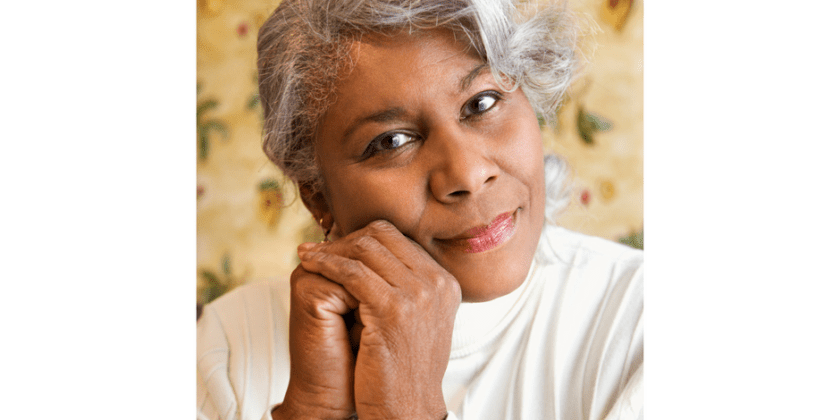Menopause1 is the time in a woman’s life when her period stops. It usually occurs naturally, most often after age 45. Menopause happens because the woman’s ovaries stop producing the hormones estrogen and progesterone.
Jay Harold wrote a post, “Menopause: 5 Signs or 7 Symptoms You should Know” that talks about signs and symptoms of menopause. This post will focus on dealing with the changes menopause brings. Jay Harold has used the resources of the National Institute on Aging (NIA)
How Can I Stay Healthy After Menopause?
Staying healthy after menopause2 may mean making some changes in the way you live.
- Don’t smoke. If you do use any type of tobacco, stop—it’s never too late to benefit from quitting smoking.
- Eat a healthy diet, low in fat, high in fiber, with plenty of fruits, vegetables, and whole-grain foods, as well as all the necessary vitamins and minerals.
- Make sure you get enough calcium and vitamin D—in your diet or with vitamin/mineral supplements if recommended by your doctor.
- Learn what your healthy weight is, and try to stay there.
- Do weight-bearing exercise, such as walking, jogging, or dancing, at least three days each week for healthy bones. But try to be physically active in other ways for your general health.
Other things to remember:
- Take medicine if your doctor prescribes it for you, especially if it is for health problems you cannot see or feel—for example, high blood pressure, high cholesterol, or osteoporosis.
- Use a water-based vaginal lubricant (not petroleum jelly) or a vaginal estrogen cream or tablet to help with vaginal discomfort.
- Get regular pelvic and breast exams, Pap tests, and mammograms. You should also be checked for colon and rectal cancer and skin cancer. Contact your doctor right away if you notice a lump in your breast or a mole that has changed.
Free Information from the NIA
The National Institute on Aging (NIA) has publications on many of these topics. See For More Information3 to learn how to order your free copies.
Menopause is not a disease that has to be treated. But you might need help if symptoms like hot flashes bother you. Here are some ideas that have helped some women:
- Try to keep track of when hot flashes happen—a diary can help. You might be able to use this information to find out what triggers your flashes and then avoid those triggers.
- When a hot flash starts, try to go somewhere cool.
- If night sweats wake you, sleep in a cool room or with a fan on.
- Dress in layers that you can take off if you get too warm.
- Use sheets and clothing that let your skin “breathe.”
- Have a cold drink (water or juice) when a flash is starting.

You could also talk to your doctor about whether there are any medicines to manage hot flashes. A few drugs that are approved for other uses (for example, certain antidepressants) seem to be helpful to some women.
The National Center for Complementary and Integrative Health (NCCIH) funded researchers are studying a variety of topics related to menopause, including:
- The effects of acupuncture on hot flashes
- Whether hypnotherapy is a practical way to improve sleep in women with menopause symptoms
- The actions of phytoestrogens at the molecular and cellular level.
The NCCIH has reviewed studies of a number of products used in menopause. Below are their conclusions on the products.
Natural Products4
Phytoestrogens (Red Clover, Soy)
Studies of phytoestrogens such as the isoflavones found in soy and red clover have had inconsistent results on relieving menopausal symptoms. Clinical practice guidelines5 issued in 2011 by the American Association of Clinical Endocrinologists for the diagnosis and management of menopause state that phytoestrogens, including soy-derived isoflavonoids, result in inconsistent relief of symptoms. The guidelines advise that women with a personal or strong family history of hormone-dependent cancers, thromboembolic events, or cardiovascular events should not use soy-based therapies. Likewise, guidelines from the American College of Obstetricians and Gynecologists state that phytoestrogens and herbal supplements have not been shown to be useful for treating hot flashes.
Black Cohosh
Research suggests that there is overall insufficient evidence to support the use of black cohosh for menopausal symptoms.
DHEA
DHEA is a naturally occurring substance that is changed in the body to the hormones estrogen and testosterone. Dehydroepiandrosterone (DHEA) is manufactured and sold as a dietary supplement. A few small studies have suggested that DHEA might possibly have some benefit for hot flashes and decreased sexual arousal, although small randomized controlled trials have shown no benefit.
Mind and Body Practices
Hypnotherapy and Mindfulness Meditation
There is some evidence suggesting that clinical hypnotherapy and mindfulness meditation may help improve certain menopausal symptoms such as hot flashes. A 2015 position paper6 from the North American Menopause Society recommends hypnotherapy for managing hot flashes but acknowledges that any favorable evidence is limited.
Acupuncture
There is insufficient evidence to determine whether acupuncture is effective for managing symptoms of menopause.
Yoga
There is insufficient evidence to determine whether yoga has a beneficial effect on menopausal symptoms.
What About Those Lost Hormones?
These days you hear a lot about whether or not you should use hormones to help relieve some menopause symptoms. It’s hard to know what to do, although there is some information to help you.
During perimenopause, some doctors suggest birth control pills to help with very heavy, frequent, or unpredictable menstrual periods. These pills might also help with symptoms like hot flashes, as well as prevent pregnancy.
flashes, as well as prevent pregnancy.
If you are bothered by symptoms like hot flashes, night sweats, or vaginal dryness, your doctor might suggest taking estrogen (as well as progesterone, if you still have a uterus). This is known as menopausal hormone therapy (MHT). Some people still call it hormone replacement therapy or HRT. Taking these hormones will probably help with menopause symptoms. It also can prevent the bone loss that can happen at menopause.
Menopausal hormone therapy has risks. That is why the U.S. Food and Drug Administration suggests that women who want to try MHT to manage their hot flashes or vaginal dryness use the lowest dose that works for the shortest time it’s needed.
Right now, there is a lot still to learn about taking hormones. See For More Information to find out how to get a copy of NIA’s free, more detailed tip sheet, Hormones and Menopause7. It has the most current information on menopausal hormone therapy.
Patricia Posner said “Our mothers were largely silent about what happened to them as they passed through this midlife change. But a new generation of women has already started to break the wall of silence.” Jay Harold hopes that this statement is true.
Enjoyed this post? Share it and read more here. Jay Harold has put together a Resource page that you may find useful when trying to improve your health and wealth. Please take this advice of Muhammad Ali and give back to others. “Service to others is the rent you pay for your room here on earth.” ~ Muhammad Ali
Bibliography
- https://medlineplus.gov/menopause.html
- https://www.nia.nih.gov/health/publication/menopause-time-change/staying-healthy
- https://www.nia.nih.gov/health/publication/menopause#more
- https://nccih.nih.gov/health/menopause/menopausesymptoms
- https://www.aace.com/files/menopause.pdf
- http://www.menopause.org/docs/default-source/professional/pap-pdf-meno-d-15-00241-minus-trim-cme.pdf
- https://www.nia.nih.gov/health/publication/menopause-0




